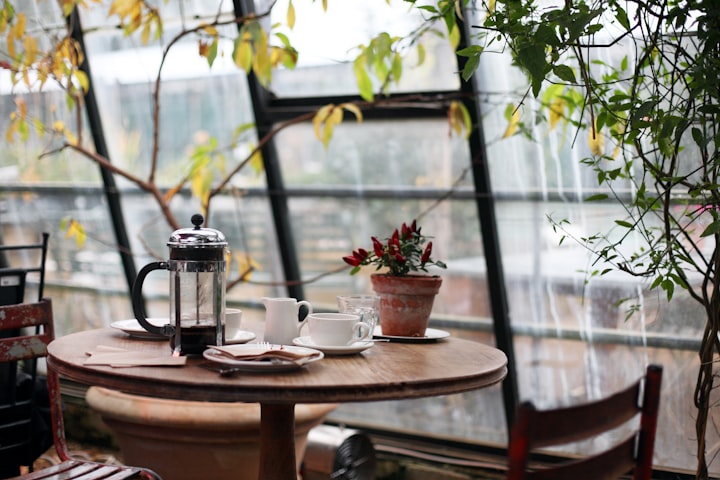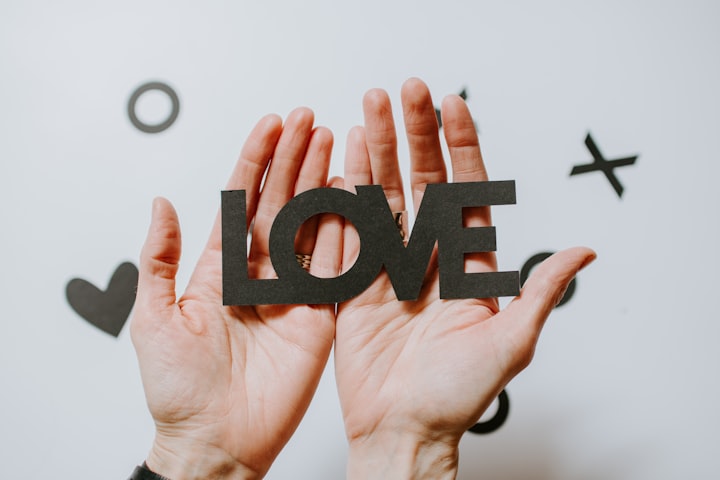Christmas by an Onlooker
It looks different from the sidelines

I love Christmas in the UK. I don’t celebrate, but I still love that time of year. There’s just something nice in the atmosphere. Plus, I love the lights. They’re my favourite. In fact, I would put up the Christmas lights at the beginning of November and wouldn’t take them down until the end of February. Come on, we can power those with solar energy now – save it during summer, spend it during winter, right? People need light. So when days are short, why not turn on the lights?
I came to the UK in October 1992 from Bosnia, a war-zone. My mum, younger brother and I lived with a Scottish family near Elgin, Northern Scotland from mid-October 1992 to mid-April of 1993. This was the first (and only) time I experienced Christmas ‘at home’ or the house where I lived.
We had Santa in Bosnia, but he’s the grandfather of the New Year, so he brings a gift (one gift, usually a little package of goodies) to all the kids. Later in life, I learned that those were organised by the firms where our parents worked, but that’s beside the point. The point is that that was not the first time I met Santa – the dude with a long, white beard, red suit, and big, black boots, who gave us presents. I didn’t like Santa when I was a kid. He was a bit scary and wanted me to sit in his lap – yo, no one could fool me, that dude was NOT my grandpa, my grandpa had a smooth face, I could see it and touch it. However, for a 12-year-old war-child in Scotland, Santa was a bit of a reminder, a calming figure, something familiar in the new land. Of course, I didn’t sit on his lap or anything like that, but it was nice to see him.
And Santa was extremely generous that year. I no longer remember all the presents I got, there were too many. But I do still have one; a gold necklace with M on it that Sarah gave me. She was the daughter in the family, the middle child, like me, stuck between a younger and an old brother. She was at university at the time and she let me stay in her room so that I don’t have to share with my mum and brother, even though the room we shared was plenty big for all three of us. I don’t know if that silly little necklace means so much to me because of everything else she had given me (her room, her time, her understanding), or because she somehow knew what I love. I wore that necklace for years until it broke and I almost lost it; in fact, I lost the chain, I only have the M. And I have never worn it since for the fear of losing it.
Maybe she would have given me that on my birthday, but I doubt she would have come home for my birthday. After all, we can’t come home for one person’s birthday and not for the others. Christmas is a different story. And if it wasn’t for Christmas, would I have had the chance to spend time with Sarah who meant so much to me at the time? I guess she still does, though I have not spoken to her since.
Now, I know, some will ask: Is it worth it? After all, preparing for Christmas is no easy task. I know this. Even though I have never prepared for Christmas, I mean, I took part in the preparations for that one Christmas we spent with a Scottish family, but that was fun; I helped out with the cleaning, the shopping and the decorating. What’s not to like? However, I do have a religion, and that religion has holidays, and those holidays have expectations.
I am a Muslim. I should also mention that I am one of those Muslims who believes in all the prophets and books, including Jesus and the Bible. It may surprise, but in Islam, this is a really big deal. In fact, it’s called a pillar of faith. So, for a Muslim, your faith is iffy if you do not believe in all the prophets and all the books. Having said that, I’m not sure Jesus was born on the 25th of December. So, even though I believe in Jesus, I don’t celebrate Christmas, but I do welcome all that Christmas is supposed to be – the charity, the giving, forgiveness, family etc.
In Islam, we have a religious holiday called Eid and it comes twice a year – one is after the month of Ramadhan when Muslims fast, and the other is like 2 months and 10 days later; those two months and ten days fly by like no man’s business and before you know it there’s another Eid. Plus, Eid follows the lunar calendar so the date changes every year.
Preparing for Eid is pretty much the same as preparing for Christmas, except we don’t decorate or buy presents; we decorate for New Year and birthdays, so that’s enough decorating. But, we do clean the house top to bottom, prepare enough food to feed an army, and we do HAVE to visit all the members of the family. Unlike Christmas, where the biggest chaos is before the day and then on the day you open the presents, eat and play games, kind of chill out. For Eid, the day is the biggest chaos. Everyone has to visit everyone else; I’m talking about grandparents, aunts and uncles, and cousins, and great-aunts, great-uncles, people who are apparently related to you but you only see them for Eid, and you have to go to their house and they have to come to your house. And, you have to be very careful which house you go to first; the order of the houses is vital as it (apparently) reflects how much you respect that person. Throw in the in-laws, and every couple has two of those, it’s a nightmare. It’s just unnecessary chaos.
Children get money for Eid in Bosnia. The parents will give the largest amount, then aunts, uncles, grandparents, then friends of your parents, then neighbours, then people your parents just know who might give you like a pound or something. However, it all adds up. Usually, a kid can get a nice sum for Eid that they can spend on anything their parents will let them buy. Yes, the kid still needs their parents’ permission before they can spend a penny of that money, though technically, it is their money.
For a child, Eid is great. Kids get new clothes, a day off, and lots of money. Pre-Eid cleaning is serious business, so kids are not asked to help – we pull out the furniture, wash EVERYTHING (windows, curtains, carpets, sofas, chairs, tables, plates, cutlery – just everything!). And the cooking is even more complicated, so children are asked to stay away.
However, for an adult, Eid is hard work, huge stress, and it costs a lot of money. For most people, money is not an issue if they have it, but if they don’t, Eid can be so embarrassing. It’s like making a tough life, twice as tough. Poor people have expressed a desire to prove that they are also generous, or that they wish they could be generous. And then there are some rich people who could be generous, but refuse to be, which makes the poor people feel even worse. Or there are tales of someone who is rich, but in fact, they’re not. This last group is in the worst position. Not only do they feel bad about being unable to give, but they are also gossiped about as being stingy.
So I do understand that if you’re an adult and you celebrate Christmas, it may not seem like a joyous time of the year. Not only do you want to give your children everything they want, but you want them to know that you would if you could. And the fact that you can’t, makes you feel like poo, especially considering how it affects your kids, and that your kids have to live without things that other kids enjoy, perhaps even learn from.
And then there’s the family. You either hate having to meet with them, or you miss them. I know both sides, after all, when we first came to the UK no one even knew about Eid, let alone that we had a chance to celebrate it with our family. In fact, we spent our first Eid in the UK praying that everyone was still alive. Back then, we didn’t have the fancy phones we have today so we couldn’t just call and talk to them.
The fact is, we can’t get anything perfect. But how much did we mess up our religious holidays? As an onlooker, I love Christmas in the UK because I just get to see the excitement, and the anticipation, yet everyone is kind of nicer. There seems to be a little voice urging them to be calmer even when they’re rushing about and stressing over everything. We all imagine this disappears completely once Christmas is over, but it doesn’t, not completely. These sort of things linger within us, and we carry them every day.
However, the way that good things linger, so does the bad. Comparing my ‘onlooker’ experience with my ‘participant’ experience in terms of religious holidays, I have started to wonder if we are losing that part of ourselves that knows true enjoyment; if the bad is winning the battle. You know, like, would Jesus (or any other prophet) want us to forget the spirit of forgiveness, mercy, neighbourliness, just because we couldn’t get the gift we wanted or we couldn't give as much as we wanted?
There is no denying that religion can be used for good, for something that promotes our human qualities, so why are we hell bent (pun intended) on turning it into something bad, something that encourages the deadly sins in us?
About the Creator
Meliha Avdic
I'm an activist and a writer, born in Bosnia, grew up in the UK - yes, I know, another war-child who grew up a little too brave. I'm also a bit of a meverick. Please feel free to get in touch.
www.meliha.webador.co.uk






Comments
There are no comments for this story
Be the first to respond and start the conversation.